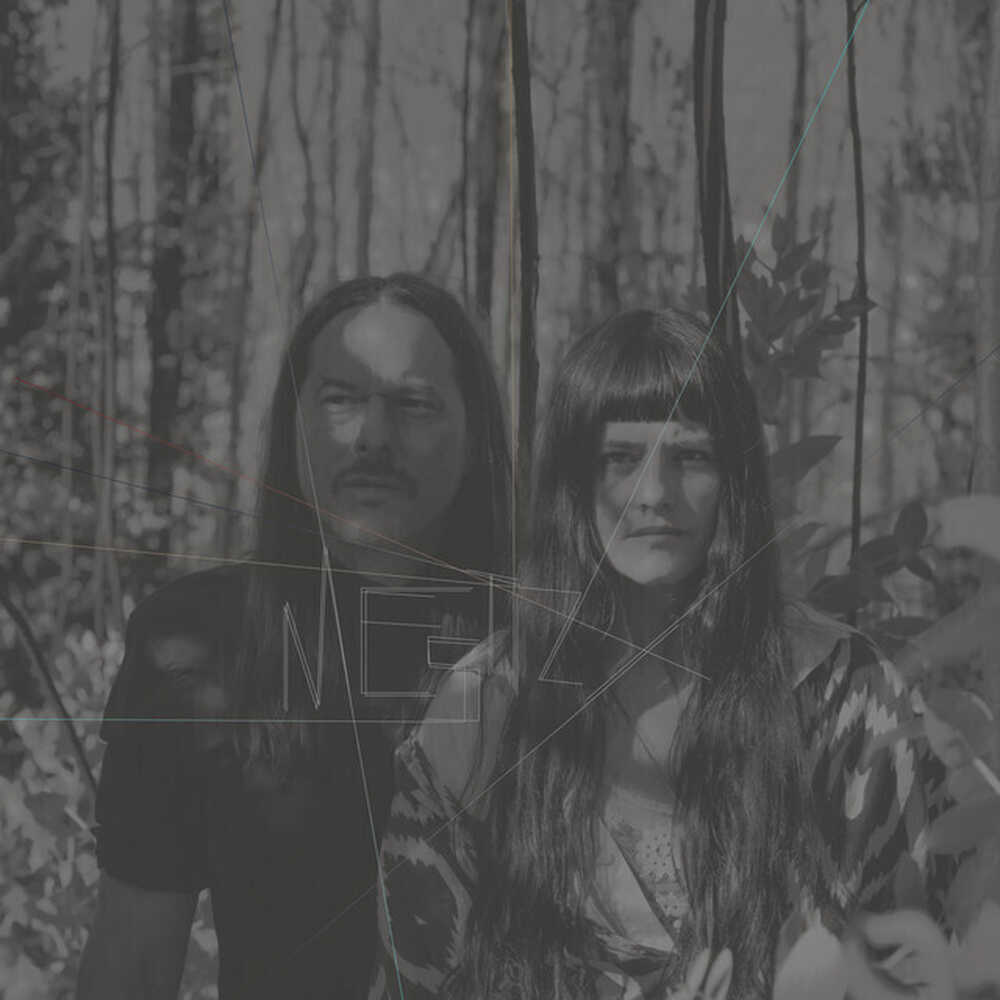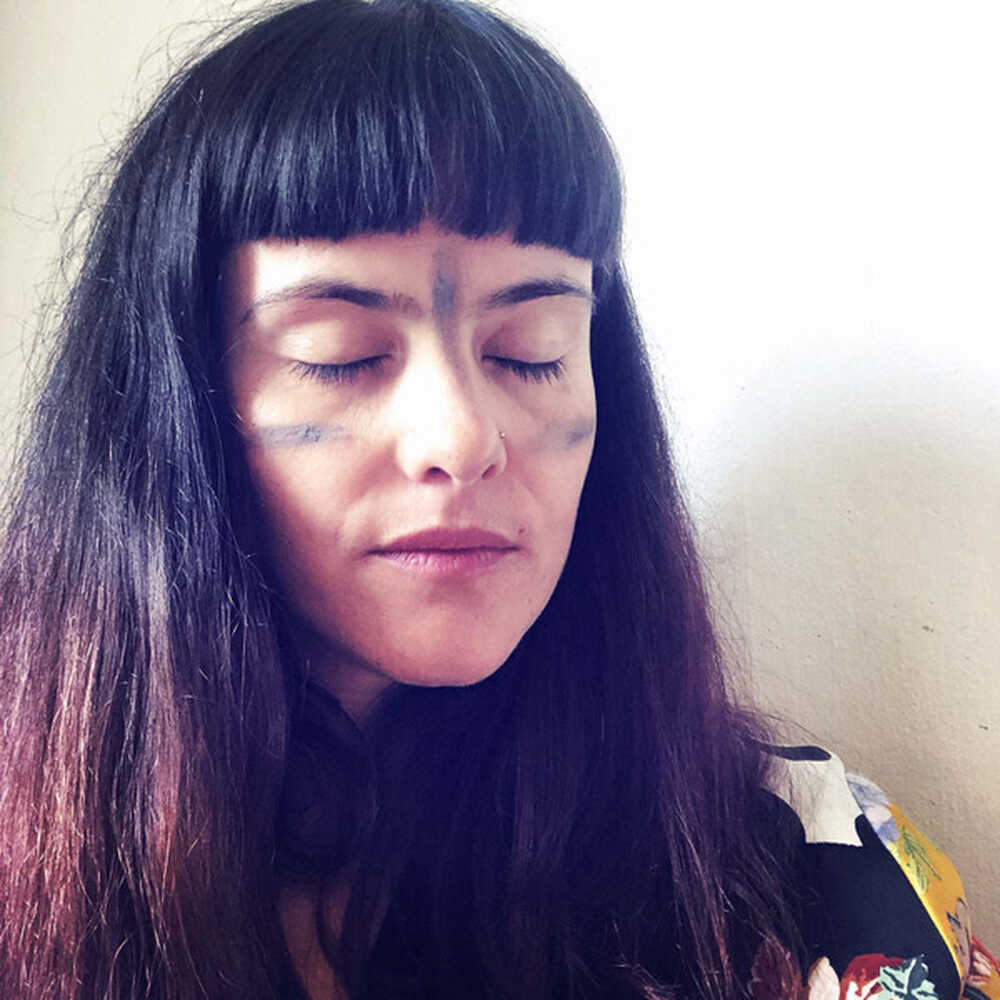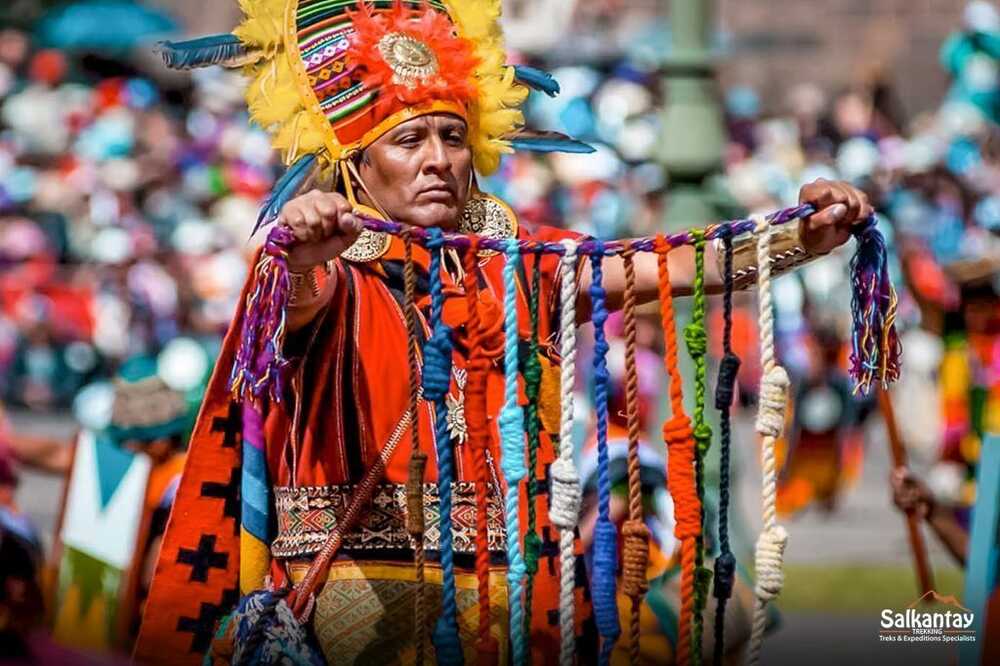Rituals and roots
Interview by Stijn Buyst
Musician, dancer, and playwright Ibelisse Guardia Ferragutti was born in Bolivia and raised in Brazil. Drummer Frank Rosaly is of Puerto Rican descent, but grew up in Arizona before making a name for himself in Chicago's free jazz scene.
When the two fell in love over a decade ago, they embarked on a long search for their mestizo roots and the music, traditions and rituals of their ancestors.

Last year International Anthem released "Mestizx", an LP on which they present the first results of this search. Fodder for an in-depth conversation.
Ibelisse: 'Our meeting brought us closer to our mestizo backgrounds. The fact that we both have colonial and indigenous ancestors connected us. Frank obviously comes from free jazz, while I think more from rituals. I think with 'Mestizx' we found a sweet spot between free jazz, storytelling and songs.'
Frank: 'I have always been drawn to free jazz as an expression of resistance, as it has evolved historically. Nowadays there are more groups that see it that way again, like Irreversible Entanglements and Moor Mother. But in the early 2000s, I missed that element in the music: it felt more like a stylistic exercise.
When I moved from Arizona to Chicago, I was suddenly surrounded by all this improvised music. It was a revolutionary experience: holy shit, can you do that?'
Through my meeting with Ibi, who has been an activist all her life, I remembered that for me, that element of content is integral to music.
Ibelisse
But when people told me that there was no point in giving my improvisations a title, it seemed that this music had lost its committed roots.
Meeting Ibi, who has been an activist all her life, reminded me that for me that content element is integral to the music. So when we started this record, I thought it would be a very experimental, noisy record, but we drifted more and more towards the song form.'
Ibelisse: 'The folk music of our ancestors soon took a louder place, as if to remind us that we also had a responsibility to them. We then proceeded to do so with great reverence, to honor their quest for liberation.'
ANDES
Ibelisse, in the liner notes you write that it was with much trepidation that you explored the Andean part of your roots because some of your ancestors were settlers.
In "Mestizx" you literally sing "soy el problema y soy la respuesta" - I am the problem and I am the answer.

Ibelisse: 'Growing up in Bolivia is very complicated because we all have mixed roots. Even today there is a lot of segregation based on skin color. As mestizos, we are not allowed to participate in certain rituals. But everyone grows up with Andean music, because this folklore is loud.
Originally, I didn't want to touch that music because of my colonial roots - my name is Guardia, you know. I wanted to respect the existing boundaries. So I felt that my first step should be to acknowledge what happened.'
I am the colonizer, but after five generations I have also become the colonized. So why, after five hundred years, should I still not be allowed to identify myself as an Andean musician?
I totally understand: the colonial wounds are so deep and these people are afraid of the appropriation and misuse of their knowledge. Funnily enough, after the release of the record, a group of indigenous Bolivians adopted me. They introduced me to their world view, which I respect very much and which I treat as carefully as possible.
So now I'm also learning the real Andean cosmology and music, which is very different from what you hear on Spotify.
I am the coloniser, but after five generations I have also become the colonised. So after five hundred years, why should I still not be allowed to identify myself as an Andean musician?
Ibelisse
Your uncle played with Los Kjarkas, who toured the world with this music. Well, I know the Chileans Victor Jara and Violetta Parra, the pioneers of the politically tinged Nueva Cancion, but Los Kjarkas is more difficult for me to place politically, partly because I don't know Bolivian history very well.
Ibelisse: 'Victor Jara and Violetta Parra were also very important in Bolivia. Los Kjarkas could be compared to Victor Jara, but the big difference is that in Chile the indigenous population has been almost completely eradicated. There are still the Mapuche, but they are very few.
In Bolivia, the original inhabitants - including Quechua, Aymara, Guaraní - are still in the majority, so the proportions are different.'
Certainly there was a lot of social and political unrest up until the 1980s. There still is now. But it is a complicated history, because in Bolivia we have experienced many successive dictatorships. To understand this whole history, I like to be assisted by the sociologist and historian Silvia Rivera Cusicanqui (professor emeritus at the San Andrés University in La Paz, sb). She has taught me a lot about Bolivian history.
'I find the current sound of Los Kjarkas a bit too pop, but their great achievement is that they reclaimed folk music in the 1970s. It had been forbidden to play this music since the nineteenth century. They adapted it a little bit, using Spanish instruments like the guitar and a Western tuning - what we in the diaspora call "criollo.
Still, they gave the people anthems to be proud of. Certainly their early music was incredibly poetic protest music. Frank and I went to a stadium concert of theirs, and we both cried big tears, because it's music that confirms to people that they belong there.'
Was your family musical as well, Frank?
Frank: 'Well, I did not have a famous uncle who traveled the world. And certainly not two. (A Brazilian uncle of Guardia Ferragutti played accordion with Gilberto Gil, sb).
I listened to a lot of salsa and Spanish ballads at home. And we ate Puerto Rican food. But growing up in Arizona as a 12-year-old, it didn't feel like we were really embracing our roots.
My father had come there to serve in the military, and my parents wanted more than anything to assimilate: outside the house we were as American as possible - trying very hard not to speak with an accent and so on... Sad, really.
The piece of Puerto Rican culture that my parents were not very familiar with, I had no inkling of that until I started reading about it in my twenties...'
Frank
The part of Puerto Rican culture that my parents were not very familiar with, like the Afro-indigenous part - bomba en plena and folk music - I had no idea until I started reading about it in my twenties...'.
It feels like parents trying to protect their child.
Frank: 'Of course, I don't know if I would have made a different choice in their situation. But when I started reading about it, I realized very quickly that Puerto Rico has become part of the United States. Colonization has really won there. But in the last 20 years there has been a movement to rediscover those roots. I really liked that.'

Ibelisse: 'Bad Bunny even did it with hip-hop!'
Frank: 'On his new record, he talks about these issues in an incredible way. It makes me very proud that these issues are being heard internationally, because I feel very sorry that I was so embarrassed about my roots in Arizona in the 1970s. And with Mestizx, we're trying to do our part.'
You just told us about the process you went through: talking to historians, activists, traditional healers....
Ibelisse: 'With the Bolivian people who wanted to be my teachers, we have already been able to do incredible ceremonies. It is also not tied to territory: It allows Frank to connect with his lineage as well. One of the things we have learned from these sessions is that forgiveness is very important.
An important technique is also to look for your inner warrior, to see things as they are, and to try to understand the survival choices of our ancestors.
Music also plays an important role, although in Aymara, one of the indigenous languages, there is not even a word for music.
This alone shows that music has a very different function than in the western world. It is a way of connecting with your ancestors, with the earth, with past and future generations.'
Music also plays an important role, although in Aymara - one of the indigenous languages - there is not even a word for music.
Ibelisse
BLACK LIVES MATTER

Mestizx' fits into a trend of politically themed records: Matana Roberts' 'Coin Coin' records, jaimie branch's 'Fly or Die' series, or even Mette Rasmussens ØKSE's recent record.
Frank: 'I see a direct connection to the state of the world. For me personally, the Black Lives Matter movement was very important. It certainly reminded me of its origins for light-skinned free jazz musicians like myself.
The world is just on fire. Sometimes it gets really hard for me.'
I heard from Aaron Cohen, who teaches jazz in Chicago, that one of his students no longer comes to class for fear of ICE raids (targeted raids under Trump to round up undocumented immigrants).
Frank: (sighs deeply) 'Unbelievable. Aaron is my buddy: a special guy who comes to all the concerts. I find it very hard to process all these raids and the amount of hate being spread by this new fascist regime. This is very close to my own history. I can't help but think of my parents' fear when they came to Arizona in the 1970s. We are also afraid to go on tour in the United States now.
It seems that people who speak out against the government should expect repression. There's a fear of free speech that wasn't there before. Our record may be critical of the system in general, but maybe we are seen as dissidents in the States now?'
Ibelisse: For me it is different because I grew up knowing that Victor Jara died because of the songs he sang and that they broke his hands before they executed him. I grew up without freedom of speech, without any freedom at all. Silvia still speaks freely, but she has been exiled from Bolivia and tortured.'
FEMINISM
Can you tell us how you started your activism, Ibelisse?
Ibelisse: In Bolivia, activism is a survival mechanism. Because of the lack of proper education, there is also a total lack of technological resources. The first big action I took part in was a protest against the privatization of water services: we called it the water war.
That's the first time I took to the streets like a warrior. In the end, we won and the privatization was reversed. That was when I began to understand the importance of sovereignty - sovereignty of territory, but also sovereignty of the body.
I quickly realized that you don't always have to take to the streets with sticks, but that it's also a psychological, emotional and spiritual struggle.
I quickly realised that you don't always have to take to the streets with sticks, but that it is also a psychological, emotional and spiritual struggle.
Ibelisse
Today I do the same thing, but with art and by learning from people like Silvia. I'm especially looking for voices that are not being heard and cultures that are being erased. That's why it was so important for me to get permission to work with these indigenous people and learn about their caring relationship with people and the earth.

It's an ecological activism that I also carry out by organizing monthly conversations where we - often members of the South American diaspora living in Amsterdam - talk about our struggles with colonial mindsets and how to deconstruct them.
Listening is an important part of this. One of the things I learned in Bolivia is that true listening is a political action.'
There is also a strong feminist side to Mestizx. In "Invocacçāo" you sing about your grandmothers and the work they did.
Ibelisse: 'I sing this song in Portuguese because it was the first language I spoke, the language of my mother's side. It was inspired by "Vale do Jucá" by Siba, a song about how slaves on plantations took care of the earth. It reminded me of the stories my grandmothers might not have been able to tell. The lyrics are a kind of prayer, asking for permission to connect with their dreams and fears.
Anything else you want to say about feminism, Frank
Frank: 'Well, my father left when I was very young, so I was raised by my sister and my mother. I absorbed their experiences very much. So I feel very connected to feminism, also because I am a rather feminine man.'
My friend came home in shock the other day when a colleague started a sentence with "I'm not a feminist, but...".
Ibelisse: 'I recognize that. In Latin America, women are often bigger machistas than men. It's a survival mechanism, of course, but it was one of the reasons I left South America, even though it's a wonderful place in many other ways.'
MAGIC
Can you talk a little bit more about how that activism ended up on stage?
Ibelisse: 'Even before I met Frank, I saw concerts by Hamid Drake, Natural Information Society and the ICP Orchestra in Amsterdam, and they reminded me a lot of Bolivian rituals.
In a live concert, sometimes something happens that cannot be named, that reminds us of our existence and the things we are fighting for.
You make memories together, you can share worlds and maybe even see into the future. In that way, concerts are a kind of portal, just like these rituals.'
Frank: 'We also choose the people we play with based on that: they are all very good at bringing songs, but at the same time they are incredible improvisers.
We're not going to play the songs exactly as they are on the record: the spirit of improvisation and creating magic in the moment will also be very much in there.'
Ibelisse: 'It is the magic of that ritual in that particular moment.'

Anything else you want to share about the record?
Ibelisse: 'Maybe about "writing with knots". The Andean peoples had no written language, so most knowledge was passed on orally. But they did have quipu, a system of knotted strings used to pass on information - numbers and administration.
We take these lost languages and cosmologies as seriously as any other language. We want to honor this suppressed technology by remembering it.'
Do you explain these themes to the musicians who come into the studio to play on these tracks?
Ibelisse: ‘Often they do. Ben LaMar Gay and Avreeayl Ra, for example, are always interested in the content.
They were playing on "Writing With Knots," and I explained to them that I had slightly detuned my synthesizer to approximate the sound of Andean flutes.
What happens in the Andes is that large groups of people play together on slightly differently tuned flutes. It creates a very transcendental effect, especially when you're listening at four thousand feet under a starry sky.
For me, that was a direct reference to this lost quipu technique.'
What happens in the Andes is that large groups of people play together on slightly differently tuned flutes. That gives a very transcendental effect, especially if you listen at four thousand metres under a starry sky.
i
Frank: 'So because of the altitude, you also experience this weird sound with very little oxygen in your brain: pretty trippy. And even if we don't always explain it to the audience, that kind of information is hidden in the music.
On April 18, Ibelisse and Frank will be in Ghent to give the stars a soundtrack. You might start to hold your breath a little....'

Dareyn / Ibelisse Guardia Ferragutti & Frank Rosaly
Rhythm and roots
20:15 Tickets
